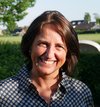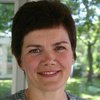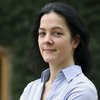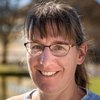
Michelle is head of the Department of Food Science at Aarhus University. Since 2003, she has gained experience primarily in leading research groups in the areas of fruit production, postharvest sciences, plant production and sustainable land use. These leadership roles have included accountability for revenue targets and delivery of science, managing key client relationships, building research networks, project management of large government funded programmes, mentoring and developing staff, staff recruitment, resource and performance management.

Milena Corredig has been a Full Professor in Food design and technology since 2006, at University of Guelph and since 2019 at Aarhus University, in the FOOD department. She is currently also CiFOOD Center Leader. Prof. Corredig completed her Bachelor studies at the University of Milano, Italy, and her Master and PhD in Food Science from the University of Guelph, Canada.

Stig Purup has a background in Biology and a PhD in Medicine from Aarhus University. He is a Senior Scientist at the Department of Animal Science at Aarhus University, Foulum, and an adjunct professor at Aalborg University, Department of Chemistry and Bioscience. At AU, he is leading the Theme group "Applied Cell Biology and Biomarkers". He has more than 25 years of experience in cell biology and lactation physiology and has published 115 peer reviewed articles among these 55 peer reviewed articles on mammary development, lactation and milk components. His main research areas are applied cell biology and animal physiology with special focus on the importance of bioactive and nutritional components in complex natural mixtures such as milk, serum, plant and tissue extracts. His overarching interest lies in elucidating effects and mechanisms of components in health and disease by use of experimental cell-based models with human and animal tissues. Currently, he is the leader of a Novo Nordisk Foundation project: "What do we drink in 2030? In vitro milk based on cultured cells", and he also participate in more research projects with the purpose of developing know-how for cell-based milk production as a sustainable alternative to cow´s milk, thereby reducing greenhouse gasses emission in the long term.

Trine Kastrup Dalsgaard is associate professor at AU-FOOD and received her master degree as Cand Polyt Biotechnology from Aalborg University in 2002. She was awarded her PhD degree in Food Science from Aarhus University in 2008. In the years hereafter, milk protein and oxidative changes were her main field of expertise, with mass spectrometry as main technique. She build up a state-of-the-art LC- and GC-MS-lab in the department and developed methods to understand underlying mechanisms and chemistry. The focus on mass spectrometry brought new ways with metabolomics in humans, animals and plants. During the last decade, her main focus has been alternative protein source with focus on blue and green biomasses as well as natural colorants. Optimization of the green biorefinery in lab-scale and understanding the molecular interaction and chemical changes taking place during processing is key.

Roberto Foschino has been Associate Professor of Food Microbiology at Department of Food, Environmental and Nutritional Sciences (Università degli studi di Milano) since 2001. He is quality manager for the Bachelor degree course in Viticulture and Oenology and he was the Head of the Microbiology section of his Department from 2014 to 2020. In 2016 he was visiting researcher at Georgian Agrarian University of Georgia, Tbilisi, Georgia; in 2017 visiting professor at Chinese Animal Plant Foodstuffs Inspection Centre, Tianjin, China. He is lecturer of applied microbiology in different courses at the Agriculture Faculty. His research topics are focused on i) exploration and exploitation of genetic and functional biodiversity of microbial strains for food production, in particular of lactic bacteria and yeasts in dairy products, alcoholic beverages and sourdoughs for bakery products; ii) characterization of bacteriophages and study of the relationship with their hosts in food processes in a "phage therapy" approach; iii) detection and typing of pathogens and spoilage bacteria in food; iv) application of predictive models of microbial growth for the evaluation of food safety and quality. Since 1997, principal investigator and head of research unit for a dozen regional, national and international projects and scientific manager of research programs commissioned by about thirty private companies.

Eddo Hoekstra studied chemical engineering at the Delft University of Technology and did his PhD in chemistry at the VU Amsterdam. He worked some years at TNO and then moved to the Joint Research Centre of the European Commission. Currently he is a team leader of JRC’s food contact material group that is split over sites in Belgium and Italy. At the same time he is an operational manager of the European Union Reference Laboratory for food contact materials.

Gry Carl Terrell has an M.Sc. in Food Science and Technology from University of Copenhagen, with emphasis on microbiology, food safety, and spoilage. Gry has a diverse work experience from the food manufacturing and analytical industry in the United States and Denmark. Since 2020, she has been working as a Senior Consultant at the Danish Meat Research Institute, a division of the Danish Technological Institute in Taastrup, Denmark.

Jessica Aschemann-Witzel is Professor and head of Centre at the 'MAPP Centre - Research on Value Creation in the Food sector' at the Department of Management, Aarhus School of Business and Social Sciences, Aarhus University. Her research focuses on marketing and consumer behaviour challenges along the supply chain of fast moving consumer goods in general and food in specific, especially issues around health and sustainability. Topics include acceptance of healthy eating policy, consumer-related food waste, organic food, sustainability claims, plant-based protein food product development and pricing.

Dr. Niki Alexi is a Postdoc researcher of Food Science at Aarhus University. Her interdisciplinary research focuses on sustainability and the reduction of food and packaging waste within the food value chain, via food supply chain or consumer targeted interventions. To achieve this, she uses her sensory science expertise to validate novel prediction tools and processing technologies for their potential to extent the shelf life of food products and her consumer science expertise to unravel consumer consumption habits, barriers and drivers of sustainable behaviour and use this knowledge as a starting point of building targeted dissemination and engagement strategies.

Henning Grønbæk's main research area is in the field of inflammatory liver diseases from chronic viral hepatitis and NAFLD to liver cirrhosis and complications. He has especially focused on the role of macrophages and macrophage activation markers and the link between macrophages, local and systemic inflammation and metabolism. He has performed studies in NASH and cirrhosis patients with portal blood sampling as markers for liver disease severity and metabolism. He has significant experience in performing experimental NASH studies including preclinical testing of potential new drugs.

Clarissa Schwab obtained a PhD in Technical Microbiology from TU Munich, Germany in 2006. After working as a postdoc at the University of Alberta, Canada, in Food Microbiology, and at the University of Vienna, Austria in Ecogenomics, she joined the ETH Zurich, Switzerland, in 2011 as senior scientist. In Zurich, she established her research program in Food and Gut Biotechnology and habilitated in 2018. Clarissa worked as a lecturer at the Czech University of Life Sciences in Prague, and joined Aarhus University as Associate Professor in 2020. Her Functional Microbe Technology Group investigates and exploits microbial functions in food and gut ecosystems for increased food safety and gut health.

Jens Meldgaard Bruun is an MD, PhD from the University of Aarhus. He is a specialist in endocrinology and internal medicine, working as a researcher and clinician with diabetes, nutrition and obesity.Currently he holds a position as professor in nutrition at the Department of Clinical Medicine, University of Aarhus and is working as a consultant at the Steno Diabetes Centre Aarhus. In additions, he is affiliated as professor in adipose tissue metabolism at the Department of Nutrition, Exercise and Sports, University of Copenhagen.Main areas of research: Human studies in relation to nutrition, adipose tissue metabolism, diabetes, obesity - treatment and associated diseases.

Laura Nyström, D. Sc. (Food Sciences) graduated from the University of Helsinki, Finland in 2002, finished her doctoral studies in 2008 in Food Chemistry, and continued her career as a postdoctoral researcher (2008-2009) in the group of Cereal Technology (University of Helsinki). After working as a tenure track Assistant Professor of Food Biochemistry at ETH Zurich, Switzerland in 2009-2016, she was promoted Associate Professor of Food Biochemistry in 2016, and Full Professor from 2022. The current research of Dr. Nyström’s group is centered around healthy and sustainable foods and food ingredients through exploration of the health promoting constituents and their mechanisms of action, together with an improved and diversified use of plant-based materials for food production thereby improving food safety and food security. Together with her team Prof. Nyström is developing sensitive analytical methods for the study of molecular interactions of soluble dietary fibres with nutritionally relevant ligands, and applies these to explore the underpinning mechanisms of health benefits of various different dietary fibres. Further research in her group relate to study of genetic diversity of grains as well as utilization of new crops and industrial side streams for food use and ingredient extraction. Their research on extraction of antioxidants from olive mill side streams to improve circularity and sustainability along with quality of food products recently led to the formation of Gaia Technologies GmbH, a startup company aiming to commercialize olive antioxidant extracts for use in food and cosmetics.

Rong Zhou is an Assistant Professor at Department of Food Science, Aarhus University. Her research focus is on the responses of crops, vegetables and fruits to abiotic stresses. She is interested in various plant species including tomato, wheat, cucumber, soybean, faba bean and strawberry. She works on the selection and identification of tolerant genotypes, during which the potential tolerance mechanisms can be uncovered. The knowledge concerning plant physiology especially for photosynthesis and chlorophyll fluorescence, plant metabolism and high throughput sequencing is applied. Using the diverse knowledge and techniques, we investigate the comprehensive responses of plants to individual and multiple stresses with the aim to clarify the regulatory mechanisms.

Anne Mette Lykke is Senior Researcher at Department of Ecoscience, Aarhus University. She has a PhD in biology from Aarhus University. Her research is centred around ethnobotany and sustainable use of plants and has for many years focused on the tropics, mainly Africa. She has coordinated several multidisciplinary projects on nature conservation, biodiversity, prevention of desertification and sustainable development. Presently she focuses on sustainable use of oils from native African oil trees, which have interesting properties for food and cosmetics and at the same time have potentials to increase resilience, climate change mitigation and food security in African communities. The research is applied and conducted in close collaboration with local communities and research institutions in Africa

Prof. Ole Pedersen at the University of Copenhagen, Denmark, is working with abiotic stress in cereals. Prof. Pedersen's research seeks to identify root and shoot traits in natural wetland plants and wild relative to crops. A recent discovery concerns the multiple functions of a well-known root trait that holds the potential to improve tolerance to soil flooding, drought and salinity without any obvious trade-offs. Lately, his research has focused on flood and salinity tolerance of rice and he is currently leading Climate-smart African Rice, which is a program aiming at improving the resilience of African rice.